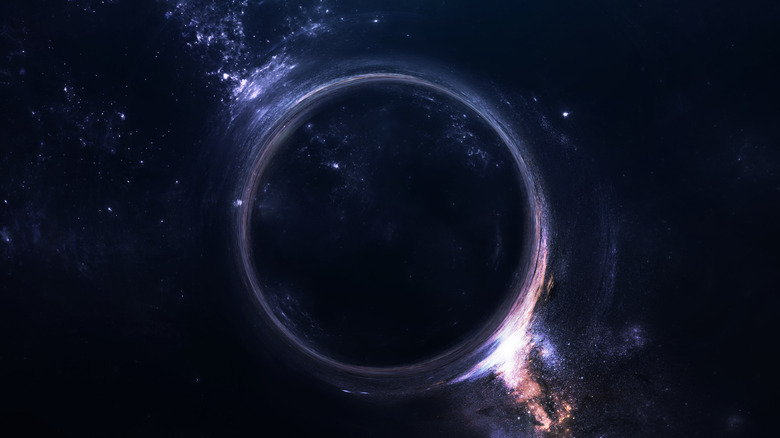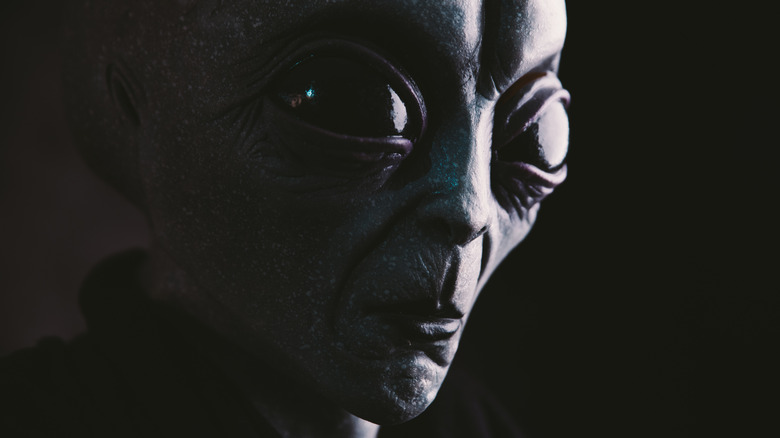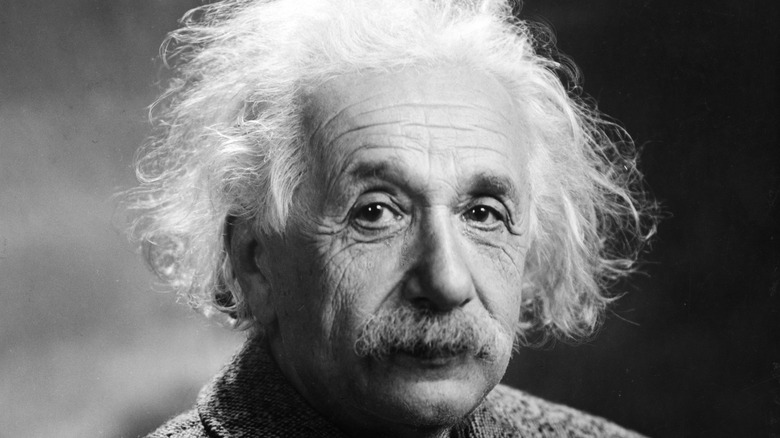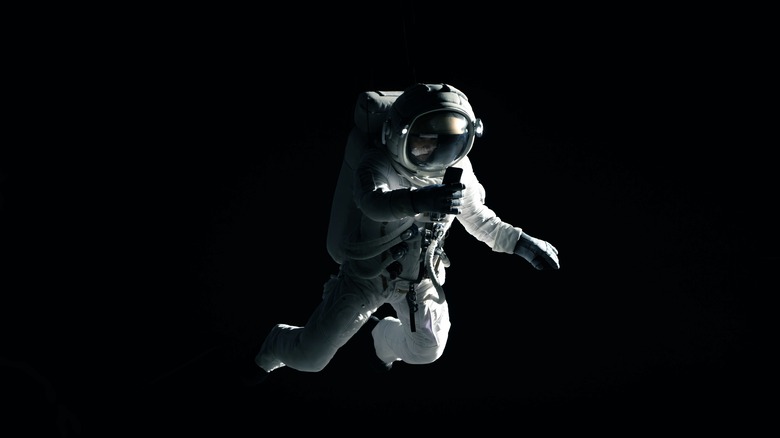Paradoxes That Will Blow Your Mind
What can be this, that, neither or everything all at once?
Paradoxes have given people insomnia for thousands of years. Everyone from ancient philosophers to quantum physicists has argued over them, and they have perplexed even some of the most brilliant minds. From Aristotle and Zeno to Albert Einstein and Stephen Hawking, great minds have spent their lives researching and proving seemingly self-contradictory ideas.
Even observing the sky at night is a paradox. Why is it dark when there are so many orbs of burning hydrogen that should be radiating an explosion of light? Maybe stars alone are not enough.
There are some paradoxical questions you have probably been wondering about since you can remember. Which came first, the chicken or the egg? Could you really change anything in the past if you hurtled backwards through time? Is there an actual way to get younger as everyone else continues to grow older? No definite answer exists, and yet there are endless answers. These are some of the strangest and thought-provoking paradoxes out there, hypothetical situations that could go any which way depending on how you see them. You might not want to read this at night if you intend to sleep.
The black hole information paradox
Anything that enters the gaping maw of a black hole is supposed to be obliterated. There is no going back once so much as a particle ventures past the event horizon, right?
Black holes turned out to be pardoxes in themselves when Stephen Hawking realized something that shook the realm of physics, according to The Guardian. Quantum physics says information never disappears. So what happens to an object's information when it ends up in the gravitational clutches of a black hole, from which, as Space.com notes, even light can never escape? If information is eternal, it has to go somewhere. Quanta Magazine gives one possible answer. Though Albert Einstein's general theory of relativity says that the reason nothing can flee a black hole is because its gravity is much too intense, physicist Don Page saw a way around this when he was a graduate student with Hawking as his adviser. Black holes must emit radiation.
If black holes radiate anything, that means they (like anything else in space) slowly disintegrate. Their edges start getting eaten away, with the process working its way from the outside in, so eventually all that is left is a scattering of particles. Page thought that quantum entanglement had something to do with the information in a black hole being preserved. If a particle falls in and an identical particle is radiated out, the particle that broke free is encoded with all the information of the particle that fell in. Therefore, no information was lost.
Olbers' paradox
The sky is dark at night, obviously — except it shouldn't be. There are too many stars out there. So why is the light from all those stars not illuminating the entire universe?
Astronomer Heinrich Olbers thought Earthlings might be staring up into infinite darkness because starlight gets absorbed by gases and dust in space, according to the American Museum of Natural History. The problem is that the light would just heat up any dust and gas it was trapped in until it was radiated again. To figure out the probable reason for that, you have to backtrack to the birth of the universe. The furthest reaches of space that are visible shine with stars whose light took billions of years to reach us, and while there may be many more lurking beyond that, their light has not reached Earth yet. The light of these hypothetical stars keeps traveling, and the cosmos stretches that light further as it expands.
Whether the universe really is infinite is something nobody has been able to prove. However, maybe the reason it is so dark out there despite so many stars is because the universe isn't old enough for their light to flood the sky yet. This was an idea that came to — not a scientist — but Edgar Allan Poe. From its inception, the universe has been expanding, but as NASA says, the only way we would be able to see a star (at whatever distance) from any direction is if it wasn't.
The dichotomy paradox
When you travel a finite distance, you get to a place in a given amount of time, right? Now try dividing that distance (which can be anything) in two over and over and over again. Suddenly, it's infinite — but there is no way a finite distance can go on forever.
Ancient Greek philosopher Zeno came up with this one and famously got entangled in an argument with Aristotle, according to Stanford University. What Aristotle countered with is that you also need to take time into consideration when trying to figure out the answer. If you do that, then the segments of time would add up to a finite amount of time that the distance was traveled in. But Aristotle's argument was only leading up to the same paradox (just in terms of time rather than distance). If you keep dividing a stretch of time again and again, it suddenly becomes infinite, so he was faced with the same issue. It is possible to argue that distances or amounts of time can remain finite even if divided infinitely.
Aristotle determined that the time it takes to get from one place to another can be both finite and infinite, but as Forbes says, the paradox is less about time and more about motion. Speed plus direction equals velocity. While velocity can change, the traveler in this scenario is in constant motion. Something reaches its destination in a finite amount of time because velocity is finite. Sorry, Zeno.
The Fermi paradox
The truth is out there. Whether intelligent aliens exist is still a mystery, but if they do, there is the question of why they aren't responding to us. So maybe they don't exist. But there could be something getting in the way of an answer. Or not. See where this is going?
It was atomic scientist Enrico Fermi who dared to ask the probing question, according to the University of Oregon. If so many habitable planets supposedly exist, and intelligent species evolved on at least some of those planets, then where are they? Why haven't they reached out? Fermi put it like this, as Cosmos Magazine says — because there are many sun-like stars in the Milky Way, there must be Earthlike planets orbiting those stars. Earth may not stand out so much as people like to think when it comes to intelligent beings. Assuming it doesn't, then there must be other species that are using a high level of brain power. Some of them might even be capable of technology that even science fiction can't imagine — and possibly interstellar travel, something humanity hasn't achieved yet.
Aliens capable of zooming from one star system to another might have been around longer than us. There are stars similar to our sun that have been around for billions more years, so while interstellar travel would take a while, an extraterrestrial civilization might have had extra time to get it right. Why humans haven't received any signals remains a mystery.
The predestination paradox
Is destiny the final word? Maybe. Imagine you were able to time-warp backwards because you wanted to save someone from a tragic death. It's pointless, because the death is supposedly predetermined and will end up happening no matter what you do to prevent it.
This paradox ("predestination paradox" comes from an episode of "Star Trek") is also known as a causal loop, which David Lewis of Princeton (via California State University at Sacremento) defined as a series of events, resulting from cause and effect, in which everything that occurs can be explained by something else that happened within that loop of time. Say your younger self is out catching up over coffee with a friend. You have no idea that she would die in a freak accident decades later. Your older self returns from the funeral and somberly boards a time machine, dialing back to a year when your deceased friend was still alive. There is no other way your younger self could have known about this future tragedy besides hearing it from your older self.
This information exists somewhere in the ether because of the causes and effects that led to it, and while some parts of the loop can be explained, some cannot. There is also no telling what else might go wrong if you try to save your friend. As the Weizmann Institute of Science says, the only way to avoid doing more potential harm is not doing anything at all, since everything has already been done.
The grandfather paradox
If you could travel back in time, it seems like it would be possible to annihilate your entire existence by killing one of your grandparents so you'd never be born — but not so fast.
Time travel is full of paradoxes. This is one of the most infamous ones, since it sounds like it would be so easy to pull off if it really was possible to rewind the years, but if you were never born, as the University of Oregon says, the time machine you went back there with would have never existed. Then you run into a paradox within a paradox. You can't just choose one thing that happened in the past and change it, because, according Princeton's David Lewis (via California State University at Sacremento), there is no way to single out a moment in time. Either the entire past happened or it didn't. Say your grandfather was kicking back and watching TV in 1950. If you time-warped to that exact moment and killed him, that would mean there is now a "new" version of that year that Grandpa does not live to see.
The problem is that it's impossible to create another iteration of an event from the past. Only one version of the year you're going back to exists, and since Grandpa was alive in 1950, laughing to George Burns on primetime, you can't create a "new" version. Just in case you were wondering, there is no changing the present or the future, either.
The faint young sun paradox
It is thought that when Earth was still young, it must have had liquid water on the surface for life to emerge somehow. The problem with that is that the young sun is believed to have been too faint to overpower the intense cold of space, where water would freeze.
So if Earth was frozen, how would life emerge? Quanta Magazine says that a sun so dim would have meant the average temperature here would have been around 19 degrees Fahrenheit. Somehow, despite this, evidence of liquid water flowing on our planet as far back as 4.4 billion years ago has been found, and life emerged soon after. The sun kept fueling itself and growing brighter by fusing hydrogen atoms into helium. However, it shouldn't have been bright enough until eons after liquid water appeared on Earth, about 2 billion years ago.
Maybe Earth had a thicker atmosphere back then, which trapped enough heat for life to thrive, something a study published in Nature considered. It is possible that enough carbon dioxide might have kept Earth warm. Though Earth did suffer from bouts of freezing over, as Quanta Magazine also acknowledged, erupting volcanoes could have melted the ice, and those volcanoes might have been set off by the moon's gravity. Maybe the faintness of the sun was not even an issue. Some scientists believe that if it was as bright then as it is now, it would have scorched our planet.
The tea leaf paradox
As he was stirring his tea, Albert Einstein observed that the dregs of tea leaves at the bottom of the teacup ended up in the center as he stirred them. He started to question this phenomenon because centrifugal force is actually supposed to push them away from the center.
The dregs obviously drifted down to the (flat) bottom of the cup because they were "heavier than the liquid they have displaced," as MIT quotes Einstein himself from his 1926 article on the phenomenon. He noticed the liquid rotated as it was stirred. That meant it was affected by centrifugal force, and since the tea couldn't go anywhere because it was contained by the cup, friction kept it in place. Velocity was higher closer to the center — but lower near the bottom than the top. The liquid kept on swirling as friction manipulated it downward. This is why, as Einstein said, "The tea leaves are swept into the center by the circular movement and act as proof of its existence."
Turns out that the tea moves away from where there is friction with the wall of the cup and sweeps what remains of the leaves towards the center. Quanta Magazine says that friction also forces the liquid to flow down the sides of the cup and upward after it reaches the center, the results of which can be seen in the tea leaves that stay almost motionless in the bottom of the cup's center, even as the tea whirls around them.
The twin paradox
Say that out of a pair of twins, one becomes an astronaut. The astronaut travels far out into space at the speed of light while the other twin stays on Earth. Both see each other as moving away, so each thinks the other is aging more slowly — and it ends up true for both of them.
How is that even possible? Enter the phenomenon of time dilation. Time will slow down for the twin standing on terra firma but will speed up for the twin hurtling through space, according to the University of New South Wales. For a while, the passage of time will feel the same for both of them. Each twin will start to feel differences in how time seems to pass when the astronaut changes direction and starts making a return voyage. The astronaut will feel time passing faster instantly. The Earthling will have to wait longer to feel that since those effects won't reach Earth yet.
As the astronaut approaches Earth, there will be the feeling that less time has passed than for the Earthling, and vice versa. But wait. As physicist A. John Mallinckrodt of the California Polytechnic University at Pomona observes, this happens because the astronaut goes from existing in one velocity reference frame to another. The Earthling exists in just one the entire time. This means there actually is a solution to this paradox, and that it is only the astronaut who rocketed through space and back is actually younger.
Schrödinger's cat paradox
The cat is dead ... but it's alive ... but it's dead ... or is it? The answer is that this hypothetical cat can technically be called living and dead until someone actually sees whether it's still alive.
No actual cats were harmed in the formation of this paradox. Edwin Schrödinger wondered whether a cat in a steel box, whose life depended on radioactive decay, would live or die based on when the radioactive substance in the box would start to break down, according to National Geographic. That would be detected by a Geiger counter that triggered the release of poison from a vial. There is no telling how soon that would happen because radioactive decay is so random. The only way to know whether the cat is alive or dead for real is to open the box, but until then, it has to be thought of as simultaneously dead and alive.
This is how physicists see subatomic particles in a state of quantum superposition, which is, according to the University of Maryland, the existence of a subatomic particle in multiple states at once. Electrons can spin two different ways. The human eye cannot see an electron, so it can be doing both at the same time until someone measures it to find out which way it is spinning. New Scientist says the paradox of the potentially doomed cat has sparked theories on parallel universes and other phenomena that are, at least theoretically, possible when seen through the lens of quantum physics.
The chicken or egg paradox
This might be the easiest or most difficult question ever. Which came first, the chicken or the egg? Eternal loops of cause and effect could keep you from sleeping at night.
You know chickens hatch from eggs — but you need a chicken to lay the egg — and that chicken still hatched from an egg. If you want to get evolutionary about it, creatures were laying eggs long before chickens came onto the scene, according to New Scientist. That means it is possible that something that hadn't quite evolved into a chicken laid the egg that hatched the first chicken. Chickens are the descendants of red junglefowl. That means the first hatchling that could genetically be called a chicken emerged from a junglefowl egg, so that would mean the chicken predates the egg (but only the egg that hatched it and not some dinosaur).
Just when you thought the question at least had a hypothetical answer, it gets twisted by quantum physics. In a bizarre turn, researchers at the University of Queensland concluded that both come first. This is because of something known as "indefinite causal order." Meaning, things can happen in any order in the quantum realm. While the research team couldn't exactly take a time machine back to the exact moment a chicken evolved from a junglefowl, they could prove that the shape of photons, or light particles, didn't follow a set order.











